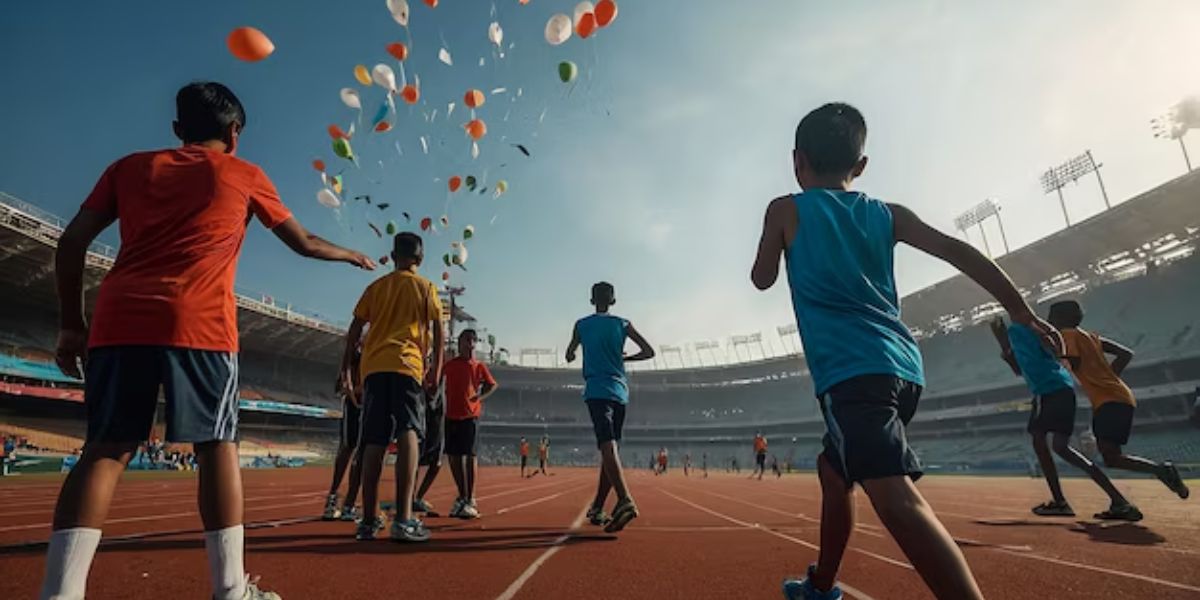How Sports Build Teams and Foster Social Connections

Sports have always been more than just a form of entertainment—they're a powerful tool for team building and socializing. Whether through local leagues or online platforms, sports provide opportunities for people to connect, collaborate, and build lasting relationships. This article explores how sports are used to foster teamwork and social interaction, highlighting their impact on various aspects of community engagement.
The Power of Sports in Team Building
Building Trust and Communication
Sports are an effective way to build trust and improve communication among team members. Whether it’s a casual game of soccer or a competitive basketball game, players have to work together toward a shared goal. This collaboration pushes team members to communicate, strategize as a group, and support each other—skills that are essential both in sports and the workplace. Learn more about effective team-building strategies.
Enhancing Problem-Solving Skills
Many sports require strategic thinking and quick decision-making, skills that are directly applicable to team-building exercises. For example, soccer or rugby players often need to make split-second decisions, adapt strategies, and overcome challenges as a team. These experiences help individuals develop critical thinking skills and the ability to perform under pressure—valuable assets in any team-building scenario.
Encouraging Team Cohesion
One of the biggest benefits of sports is their ability to foster team cohesion. Participating in sports as a group helps individuals develop a sense of belonging and camaraderie. Shared experiences, whether in victory or defeat, create bonds that strengthen relationships and promote unity among team members.
Sports also give team members the chance to celebrate successes together and learn from setbacks. This shared experience helps create a positive team culture where everyone feels valued and motivated to give their best effort. The engaging environments and interactive elements in sports, often designed by professional game art studios, play a crucial role in enhancing team cohesion and ensuring memorable experiences.
Sports and Socializing
Building Social Connections
Sports offer a platform for people to meet and interact with others who share similar interests. Whether through local leagues, attending sports events, or participating in online gaming communities, individuals can form connections and build relationships based on their shared passion for sports.
Being involved in sports also allows individuals to expand their social circles and connect with people from different backgrounds. This social interaction helps develop interpersonal skills, establish friendships, and integrate into new communities. In both physical and virtual settings, sports provide common ground for individuals to connect and engage with others.
Facilitating Networking Opportunities
Sports can also serve as valuable networking opportunities for professionals and enthusiasts alike. Corporate-sponsored sports leagues, charity events, and sports-related conferences offer chances to connect with others in their industry or field of interest. These networking events can lead to new business relationships, collaborations, and even career opportunities.
For example, many companies organize sports events as part of their corporate culture, allowing employees to network and build relationships outside the traditional work environment. These events can also give companies opportunities to connect with clients, partners, and industry leaders in a more informal setting.
Promoting Community Engagement
Sports significantly impact community engagement by bringing people together and fostering a sense of belonging. Local sports leagues, charity events, and community sports programs provide opportunities for individuals to participate in activities that benefit their community. These events promote social interaction and community spirit, strengthening bonds between individuals and their local areas.
Community sports programs also offer platforms for individuals to volunteer and contribute to local initiatives. By participating in or supporting sports events, people can contribute to their community's well-being and development. This involvement creates a sense of purpose and connection to the community, promoting social cohesion and engagement.
The Role of Online Sports in Team Building
Virtual Team Building
With the rise of digital technology, online sports have become a popular way for individuals to engage in team-building activities. Virtual sports, such as online soccer or eSports tournaments, provide opportunities for players to collaborate and compete in a virtual environment. These games require teamwork, communication, and strategic planning, similar to their physical counterparts.
Online sports also offer a platform for remote teams to connect and interact. In today’s digital age, remote work and virtual teams are becoming more common. Online sports provide a way for remote team members to bond and build relationships despite physical distance. These virtual interactions help maintain team cohesion and foster a sense of belonging among team members. For further exploration, you can check out resources on virtual team-building activities and concept art services.
Enhancing Engagement and Motivation
Online sports can also boost engagement and motivation among team members. The competitive nature of these games encourages players to stay involved and strive for improvement. Additionally, online sports often feature leaderboards, rewards, and achievements, which can further motivate players to participate and perform well.
Conclusion
Sports play a vital role in team building and socializing, offering numerous benefits for individuals and teams. From improving communication and problem-solving skills to fostering social connections and community engagement, sports provide valuable opportunities for personal and professional growth. Whether through physical sports or online platforms, these activities create environments that promote teamwork, build relationships, and enhance social interaction. By incorporating sports into team-building activities, organizations and communities can harness the power of sports to strengthen bonds and achieve shared goals.
Please note that some links in this article may be sponsored or contain affiliate content.